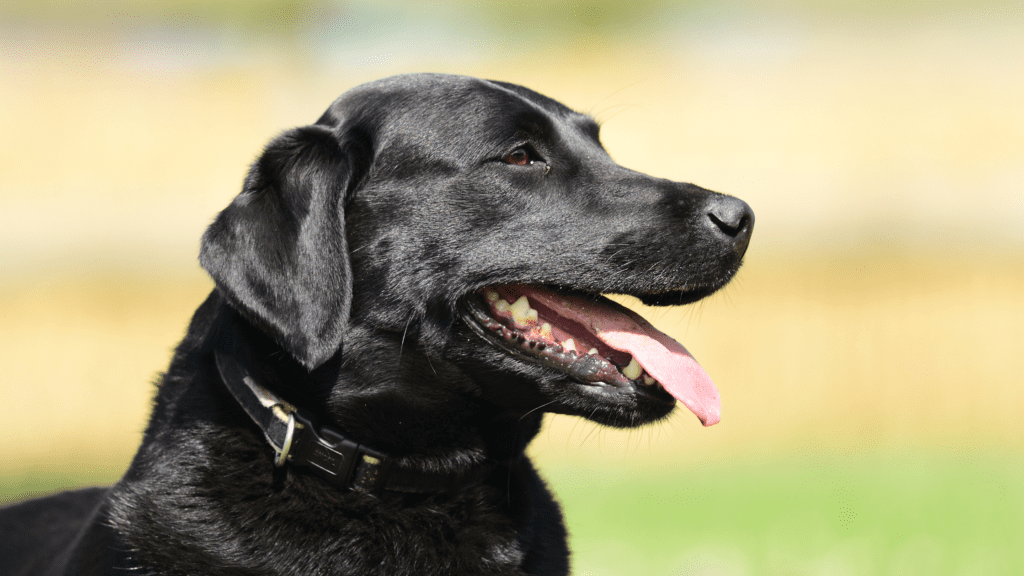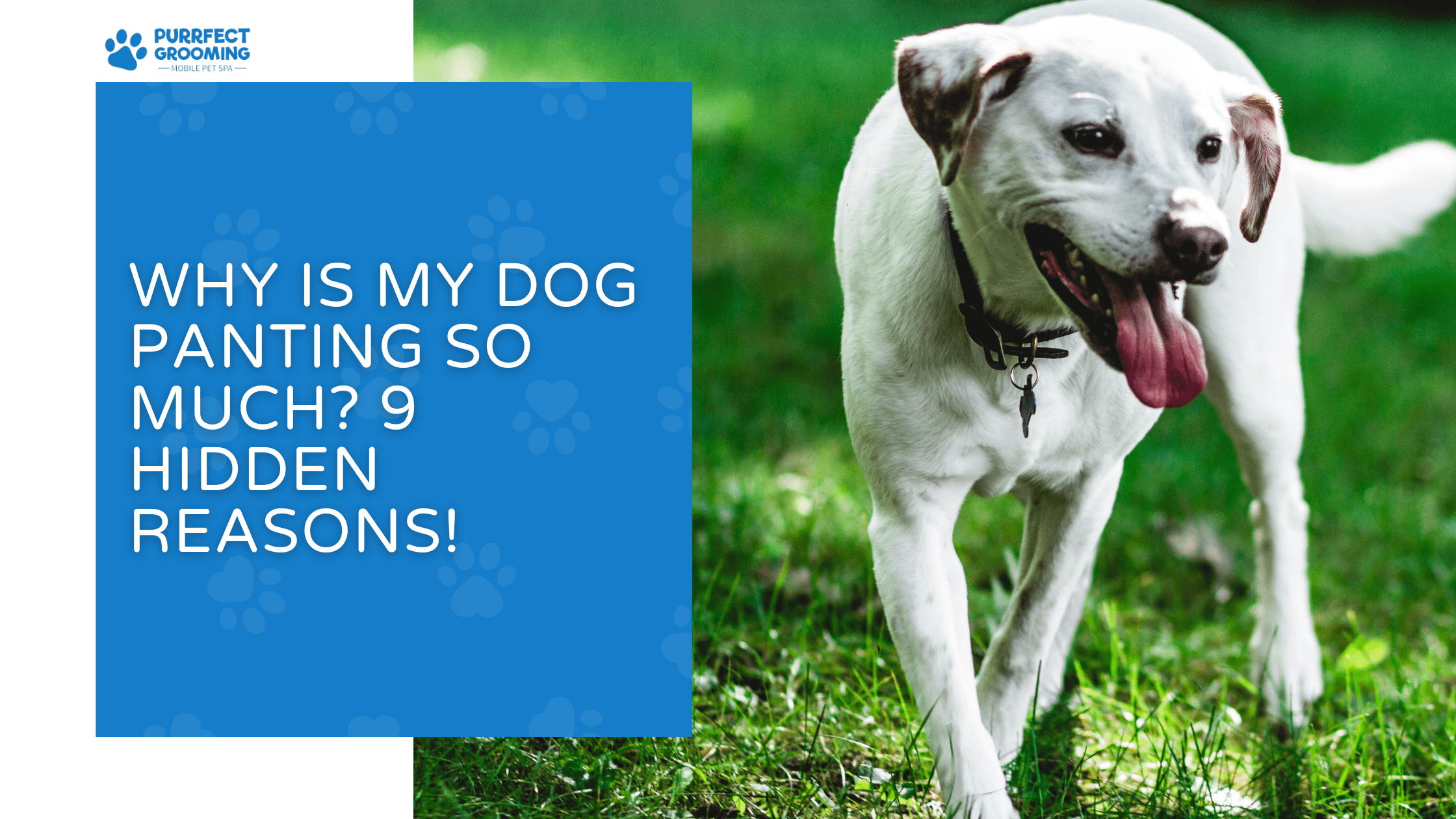Why Is My Dog Panting So Much? 9 Hidden Reasons!
Ever found yourself panicking and wondering, why is my dog panting so much? You’re not alone. Thousands of pet parents search for answers to questions like “why do dogs pant” or “dog panting a lot” every single day.
Panting is totally normal for dogs. It’s like their version of sweating. But when it becomes excessive or seems out of place, it’s time to pay attention. Whether your dog is panting from the heat, anxiety, pain, or something more serious, this guide will help you decode the cause and know what to do next.
Here’s a shocking stat: according to a 2022 study by the American Kennel Club, nearly 40% of emergency vet visits are related to abnormal panting and breathing issues in dogs. That’s a pretty big deal!
Understanding Dog Panting: The Basics
What is Normal Panting?
Dogs pant to cool down. Unlike humans, they don’t have sweat glands all over their bodies. Instead, they rely on evaporative cooling by panting. Normal panting usually happens after exercise or during hot weather.
| Normal Panting Characteristics | Description |
| Frequency | Moderate, slows down after rest |
| Mouth | Open with tongue out |
| Body | Relaxed posture |
| Timing | After activity or heat exposure |
Dog Panting as a Cooling Mechanism
Panting helps regulate your dog’s body temperature. It’s most commonly seen during hot weather or after a long walk. But what happens when your dog is just lying around and starts panting a lot?
Why Is My Dog Panting So Much?
Common Causes of Excessive Panting
If you keep thinking, why is my dog panting so much, there might be several culprits:
Heat and Temperature Regulation
Overheating is the #1 cause. On hot days, dogs are prone to heatstroke, especially breeds like Pugs and Bulldogs.
Stress and Anxiety
Anxious pups may pant when they’re nervous—like during thunderstorms or fireworks.
Excitement and Physical Activity
Just like people, dogs pant when they’re excited or after a fun play session.
| Cause | Description | Signs |
| Heat | Warm weather, sun exposure | Excessive panting, drooling |
| Stress | Loud noises, new environments | Pacing, yawning, lip licking |
| Activity | Running, walking, playing | Short bursts of panting |
Medical Reasons Behind Dog Panting
Pain and Discomfort
Panting can signal pain. If your pup is hurt or feeling sick, this might be how they show it.
Heart Problems
Issues like heart disease or congestive heart failure often make dogs pant, even while resting.
Respiratory Issues
Breathing disorders such as laryngeal paralysis or collapsed trachea can result in loud, labored panting.
Cushing’s Disease
This hormonal disorder causes dogs to pant excessively, especially at night. Watch for increased thirst and urination too.
Obesity and Poor Fitness
Overweight dogs tend to pant more, even with minimal activity.
| Medical Condition | Symptoms | Urgency |
| Heart Disease | Fatigue, coughing, panting | High |
| Cushing’s Disease | Pot belly, thirst, panting | Moderate |
| Obesity | Weight gain, lethargy, panting | Moderate |
| Pain | Limping, whining, panting | High |
Behavioral Causes of Panting
Separation Anxiety
Your dog might pant every time you leave home. It’s their way of showing distress.
Fear or Phobia
New environments, loud sounds, or vet visits often trigger fear-based panting.
How to Tell If Panting Is Abnormal
Signs That Indicate Something Serious
Not all panting is created equal. Here’s what to watch for:
- Panting at night without cause
- Heavy panting without activity
- Changes in breathing sounds
How Fast Is Too Fast?
If your dog’s breathing rate exceeds 40 breaths per minute while at rest, it’s time to call your vet.

When to Call the Vet
Red Flags to Look For
- Panting with pale gums
- Panting accompanied by vomiting
- Lethargy or collapse
- Panting for more than 10 minutes without exertion
Diagnosing the Underlying Cause
What Your Vet Might Check
- Heart and lung function
- Abdomen palpation for pain
- Behavior assessment
Common Tests for Panting
| Diagnostic Test | Purpose |
| X-rays | Check lungs and heart |
| Blood tests | Hormone levels, organ function |
| ECG | Evaluate heart rhythm |
| Ultrasound | Detect abnormalities |
Treatment Options for Excessive Dog Panting
Home Care and Lifestyle Changes
- Cool down your home
- Keep water available
- Avoid walks in the heat
Medical Treatments
- Heart meds
- Hormone therapy
- Anti-anxiety medication
Tips to Prevent Excessive Panting
Keep Your Dog Cool
Use cooling mats, fans, and shade to prevent overheating.
Reduce Anxiety and Stress
Calming music, pheromone diffusers, and routine training can help.
Healthy Weight and Exercise
A fit dog is a happy dog. Regular walks and portion control are key.
| Prevention Tip | Tools/Methods |
| Cooling | AC, fans, water bowls |
| Stress Relief | Calming chews, training |
| Weight | Diet control, daily walks |
Natural Remedies That May Help
Herbal Support
Chamomile and valerian root can calm nervous pups.
Supplements and Diet
Omega-3, magnesium, and B vitamins support relaxation and cardiovascular health.
Case Study: Max the Golden Retriever
Max, a 7-year-old Golden, started panting heavily every evening. His parents thought it was heat, but a vet diagnosed early heart disease. With meds and diet changes, Max is back to normal—and much more comfortable!
Conclusion
Panting is your dog’s natural way of cooling down—but if you’re constantly wondering, why is my dog panting so much, it’s worth digging deeper. Whether it’s heat, stress, or something more serious, knowing the cause is key to keeping your furry friend healthy and happy. Use this guide to spot the signs early and take action when it counts.
Pro Tip
Keep a doggy diary. Track when, where, and how often your dog pants. It can reveal patterns that help your vet diagnose issues faster!
FAQs
1. Why do dogs pant even when it’s not hot?
They might be anxious, excited, or in pain. Health conditions like Cushing’s or heart problems are also possible.
2. Why is my dog panting so much at night?
Nighttime panting could be due to pain, anxiety, or hormone-related issues like Cushing’s.
3. Should I be worried if my dog is panting a lot?
Yes, especially if it’s not linked to activity or temperature. Call a vet if it persists.
4. Can dog panting be caused by anxiety?
Absolutely. Anxiety is one of the top behavioral causes of heavy panting.
5. Is heavy panting a sign of pain in dogs?
Yes. Dogs often pant when they’re hurt, especially if combined with whining or restlessness.

